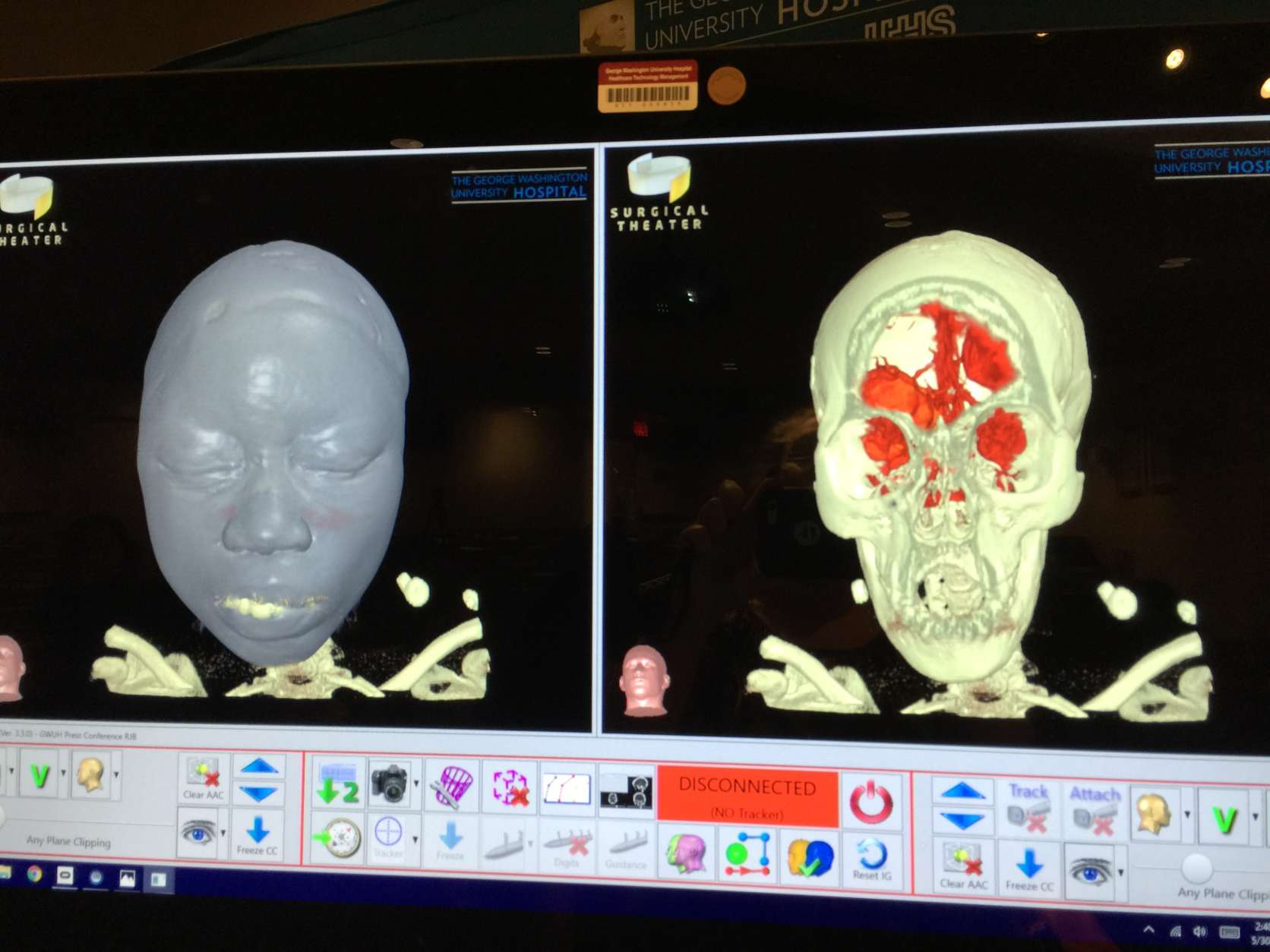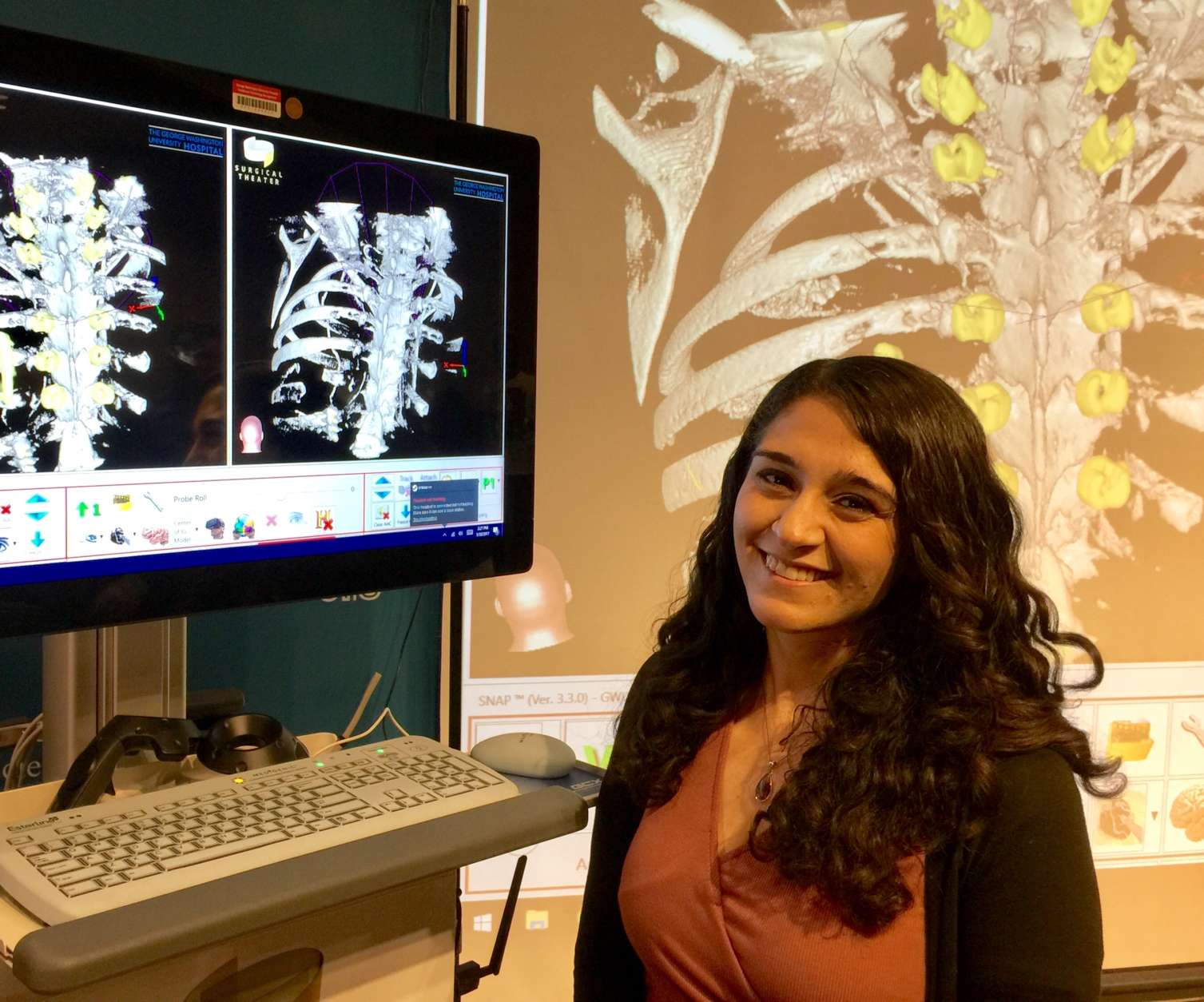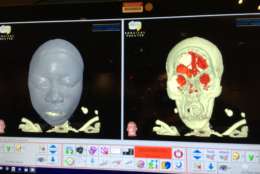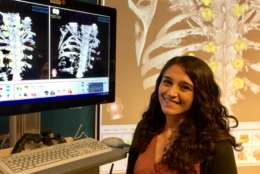"I definitely feel like a bionic woman” Riz Chener: seeing her spine @GWHospital w/ Precision Virtual Reality™ tech. @SurgicalTheater @WTOP pic.twitter.com/JcsJmXh7CO
— Kristi King (@kingWTOP) May 30, 2017


!["I like this," former brain tumor patient Roodelyn Jean-Baptiste of Fredericksburg, Virginia, said during an event Tuesday demonstrating the system. "With this, you actually see it and you actually understand what [the doctor] is going through." (WTOP/Kristi King)](https://wtop.com/wp-content/uploads/2017/05/BRAIN-TUMOR-1880x1093.jpg)


!["I like this," former brain tumor patient Roodelyn Jean-Baptiste of Fredericksburg, Virginia, said during an event Tuesday demonstrating the system. "With this, you actually see it and you actually understand what [the doctor] is going through." (WTOP/Kristi King)](https://wtop.com/wp-content/uploads/2017/05/BRAIN-TUMOR-260x174.jpg)
WASHINGTON — Virtual reality is being used at The George Washington University Hospital to give students, patients and surgeons a three-dimensional view of internal anatomy to practice, discuss and plan procedures.
“I like this,” former brain tumor patient Roodelyne Jean-Baptiste of Fredericksburg, Virginia, said during an event Tuesday demonstrating the system. “With this, you actually see it and you actually understand what [the doctor] is going through.”
The surgical theater created using Precision Virtual Reality™ was inspired by flight simulators designed to train fighter pilots.
“It allows us to go from the traditional system of flat, two-dimensional imaging to a dynamic three-dimensional imaging system,” said Dr. Anthony Caputy, chair of GW Hospital’s department of neurosurgery.
Doctors believe the new system will prove to be a useful tool for communicating with patients.
“Had a patient the other day. We were talking about a blood vessel near the tumor [to be removed], and they actually pointed it out and said, ‘How are you going to protect that. And, what is …?'” said Dr. Jonathan Sherman, assistant professor of neurosurgery and director of surgical neuro-oncology at GW Hospital.
“And you wouldn’t have had that question before, because they wouldn’t even know exactly what they were looking at.”
Sherman is among the GW doctors who believe engaged, well-informed patients are likely to have better outcomes.
“It freaks me out to kind of look at it,” former tumor patient Rizhna Chener said of examining the metal structure now holding a portion of her spine together. “I think it’s good to know, because, I mean, I feel certain parts of my body that are different.”
Patients with a better understanding both of what’s happening to their bodies during surgery and of the end result might better appreciate how much rehabilitation will be necessary during recovery.
“Outcomes, I think, are going to be much better at one year and two years from surgery,” said Dr. Michael Rosner, professor of neurosurgery.
GW Hospital will be the first hospital in the mid-Atlantic region to offer virtual reality technology for surgical patients.
“As an academic medical center, GW Hospital is committed to advancing medicine through research and technology,” said CEO Kimberly Russo.






